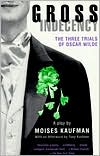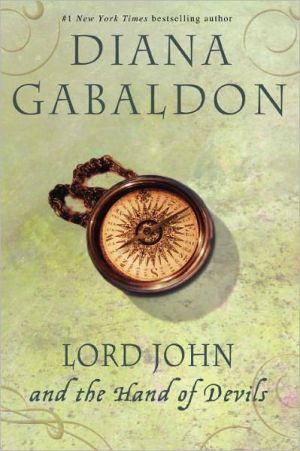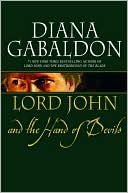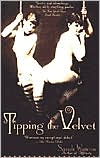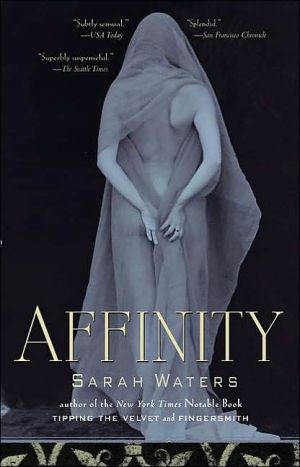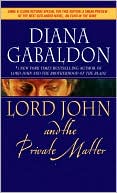Gross Indecency: The Three Trials of Oscar Wilde
In early 1895, the Marquess of Queensberry, the father of Wilde's young lover, Lord Alfred Douglas, left a card at Wilde's club bearing the phrase "posing somdomite." Wilde sued the Marquess for criminal libel. The defense denounced Wilde's art and literature as immoral, leading the prosecuting attorney to declare, "It would appear that what is on trial is not Lord Queensberry but Mr. Wilde's art!" In the end Queensberry was acquitted, and evidence that had been gathered against Wilde...
Search in google:
In early 1895, the Marquess of Queensberry, the father of Wilde's young lover, Lord Alfred Douglas, left a card at Wilde's club bearing the phrase "posing somdomite." Wilde sued the Marquess for criminal libel. The defense denounced Wilde's art and literature as immoral, leading the prosecuting attorney to declare, "It would appear that what is on trial is not Lord Queensberry but Mr. Wilde's art!" In the end Queensberry was acquitted, and evidence that had been gathered against Wilde compelled the Crown to prosecute him for "gross indecency with male persons." With Wilde's arrest, his hit plays running in London's West End were forced to close, and Wilde was reduced to penury. A second trial ended in a hung jury with Wilde's impassioned defense of "the love that dare not speak its name," prompting a third trial. In the third and decisive trial, Wilde was convicted and sentenced to two years imprisonment at hard labor. He was separated forever from his wife and children, and wrote very little for the rest of his life. In addition to Wilde, Douglas and Queensberry, characters ranging from Queen Victoria to London's rent boys, to a present-day academic are assembled to explore how history is made and how it can be so timely revisited in the theatre.NY TimesHis style was his umbrella, his armor, his all-purpose defense system, and for many years it seemed to shelter Oscar Wilde most effectively. There came a moment, however, in 1895 when the playwright was betrayed by his own wit, after which he would never again be able to gain control of his life. In the absolutely gripping GROSS INDECENCY: THE THREE TRIALS OF OSCAR WILDE, written and directed with a scintillating style of its own by Moisés Kaufman, that moment is identified with such startling precision and clarity that it feels like the inexorable moment of reversal in a classic tragedy.
\ NY NewsdayStunning...taut, shattering, yet delightfully exuberant...altogether fascinating.\ \ \ \ \ NY TimesHis style was his umbrella, his armor, his all-purpose defense system, and for many years it seemed to shelter Oscar Wilde most effectively. There came a moment, however, in 1895 when the playwright was betrayed by his own wit, after which he would never again be able to gain control of his life. In the absolutely gripping GROSS INDECENCY: THE THREE TRIALS OF OSCAR WILDE, written and directed with a scintillating style of its own by Moisés Kaufman, that moment is identified with such startling precision and clarity that it feels like the inexorable moment of reversal in a classic tragedy.\ \ \ TimeA dazzling coup de theatre, at once compelling history and chilling human drama.\ \ \ \ \ Washington PostA triumph...truth, purity, and simplicity suffuse [this] thoroughly engrossing new play...sweeps away cobwebs and distortions, allowing complex, credible human beings to emerge from history.\ \ \ \ \ Library JournalTwo-time Tony Award winner Kaufman's 1998 play about the Oscar Wilde trials is reinvigorated through this present-day live recording of the production starring Simon Templeman, Julian Sands, Peter Paige, J.B. Blanc, Dakin Matthews, Ian Ogilvy, John Vickery, Douglas Weston, and Matthew Wolf. Kaufman craftily incorporates court transcripts, newspaper accounts, and other historical documents to convey the complexity of emotion and enmity surrounding Wilde's trials and the threat his sexuality held for Victorian England. The narrative is greatly enhanced by the cast's strong performances; Templeman in particular manages, as Wilde, to oscillate deftly between the play's alternating serious emotional moments and its comedic ones. A superb bonus interview with Kaufman helps to clarify some of his creative decisions and the goals of the performance. For fans of comedies, courtroom dramas, and Wilde as well as for those wishing to understand better the view of sex and censorship in Victorian England.—Lance Eaton, Peabody, MA\ \
